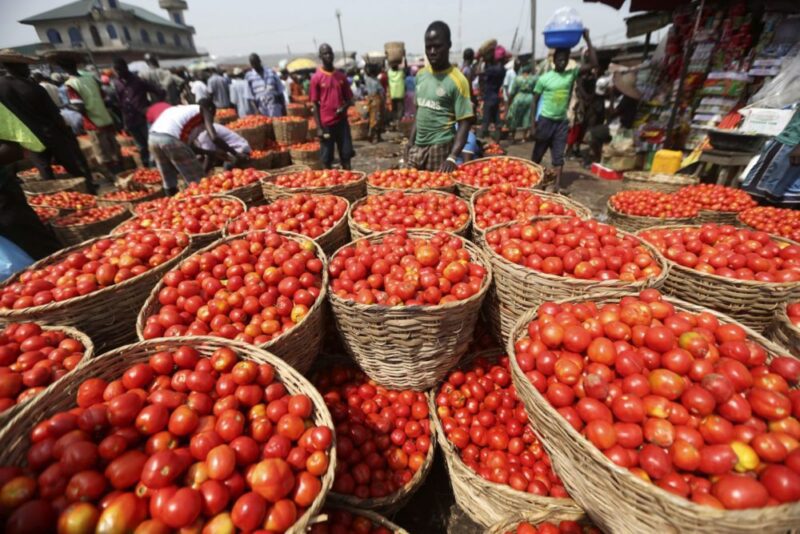Agriculture
Tomato Farming in Nigeria: Nurturing the Red Gold of Agriculture -By Khadija Muazu
The red allure of tomatoes continues to beckon as a symbol of both challenge and promise for Nigerian farmers. Efforts to fortify the agricultural landscape against pests, diseases, and market fluctuations signify a united front in nurturing this prized crop.

In the vibrant tapestry of Nigeria’s agricultural landscape, tomato farming emerges as a vital thread, woven into the fabric of the nation’s economy and culinary culture. The cultivation of tomatoes, locally referred to as “red gold,” resonates deeply within the agricultural practices of the country, offering both promise and challenges to those who till the soil.
Nigeria’s diverse ecological zones, ranging from the Sahel savannah to the rainforest belt, provide an ideal canvas for tomato cultivation. States like Kano, Kaduna, Plateau, Jigawa, and Katsina stand as bastions of tomato production, their fertile lands nurturing the growth of this crimson fruit. The versatility of tomatoes, used in diverse culinary delights and as a base for industrial products like paste and sauces, contributes significantly to its demand across the country.
Amidst the promise lie challenges that tomato farmers grapple with relentlessly. The specter of pests and diseases, led by the notorious Tomato Leaf Miner and bacterial wilt, lurks over fields, threatening bountiful harvests. The battle against these adversaries demands innovative pest control measures and resilient crop varieties that can withstand nature’s onslaught.
The struggle doesn’t end with cultivation; the journey from farm to market is fraught with obstacles. Inadequate storage facilities and a faltering transportation network leave tomatoes vulnerable to spoilage, amplifying post-harvest losses and denting farmers’ earnings. Furthermore, the fluctuating market prices, dictated by seasonal variations and middlemen exploitation, often cast uncertainty on the financial prospects of tomato farmers.
Despite these challenges, tomato farmers in Nigeria exhibit resilience, buoyed by government interventions and grassroots initiatives. Training programs that impart modern farming techniques, emphasize sustainable practices, and educate farmers on pest management strategies have empowered many cultivators. Government investments in infrastructure development, such as improved storage facilities and enhanced transportation networks, aim to curb post-harvest losses and ensure a smoother passage to market.
Research and development initiatives, fostering collaborations between agricultural institutions and farmers, stand as beacons of hope. The quest for disease-resistant varieties and the exploration of innovative technologies symbolize the commitment to overcoming challenges and fostering a sustainable future for tomato farming in Nigeria.
The red allure of tomatoes continues to beckon as a symbol of both challenge and promise for Nigerian farmers. Efforts to fortify the agricultural landscape against pests, diseases, and market fluctuations signify a united front in nurturing this prized crop.
As the sun rises over the fertile plains, tomato farmers across Nigeria tend to their fields, sowing seeds of hope amidst the challenges. With perseverance and concerted efforts, the nation can witness a flourishing tomato industry, empowering farmers and enriching the nation’s agricultural tapestry with the vibrant hues of this “red gold.”
Khadija Muazu From Mass Communication Department Borno State University, Maiduguri.



















